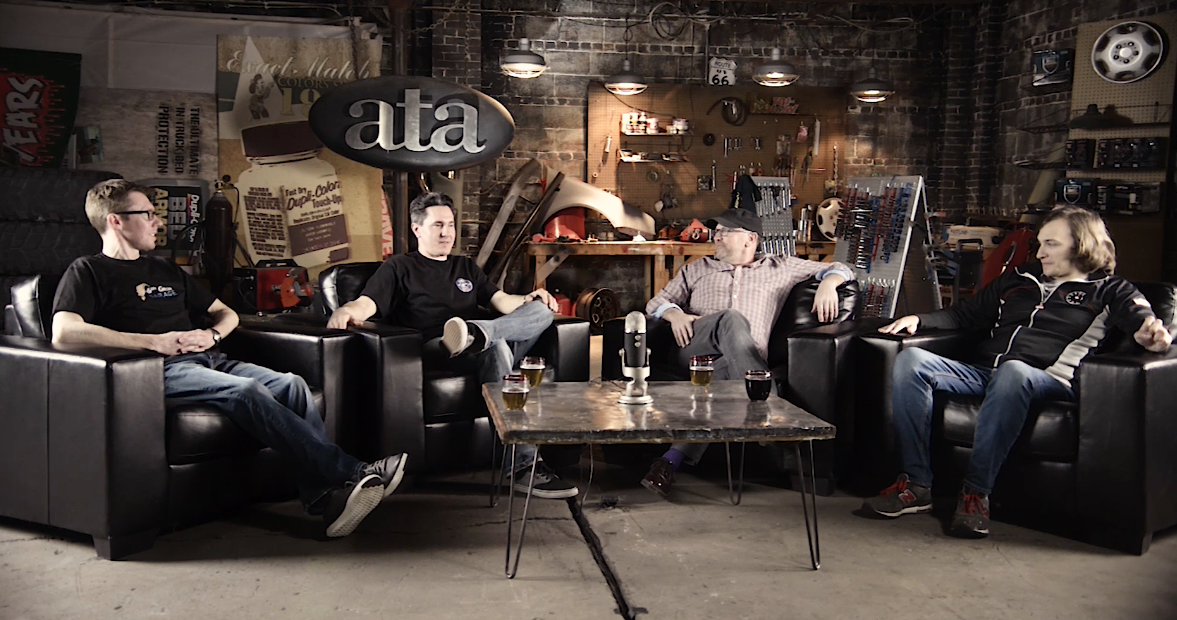
It's almost become our motto at this point: here at ATA, we believe that the best way to understand who makers and DIYers are (and what they want from your brand) is to engage them in authentic conversations. One of the most powerful groups of DIYers trending today are automotive DIYers. While we've been working with automotive brands for years, we wanted to get to the bottom of what automotive DIYers are really looking for online. That's why we assembled a panel of DIYers for our third installment in our Maker Focus Group series last month.
The four DIYers on our panel come from various background and have differing automotive interests, but we thought it was truly insightful to hear how much they have in common when it comes to their online habits. Here's what we learned from our focus group, Creating Authentic Online Connections with Today's Automotive DIYers.
To view the complete focus group video for even more insights, click here.
Auto DIY Focus Group Highlights
- Help, don't sell. Our panel unanimously agreed when motorcycle DIYer and auto detailer David Kidd brought up this key point: when DIYers search online or head to social media, they're not looking for a sales pitch. They're looking for advice, answers to their questions, and ways to improve their process. Yes, of course you need to sell your product at some point (and many DIYers love the convenience of shopping online), but not every online interaction should be about selling. Build trust and add value to the online DIY community by sharing your expertise and creating helpful content. Those are strategies that humanize your brand and help close sales later.
- It's better to be intuitive than flashy. DIYer and auto podcast co-host Cameron VanDerHorst told us what he likes about his favorite automotive websites, and his explanation might surprise you: "It's not flashy; it just works." The panel agreed -- they've seen far too many automotive websites that are so cluttered with graphics and features that they fail to perform what should be their main function: helping the customer find what they need. The advantage of a simpler website design is that DIYers are able to find the parts, tools, and technical info they need without jumping through hoops to get it. Branding and having a cohesive look is certainly important, but that should never come at the expense of a positive user experience that makes DIYers want to visit your site again.
- DIYers research far and wide before they buy. The beauty of the internet is the amount of information available at our fingertips, and when it comes to researching brands and products, DIYers collect as much of it as they can. But there are many pieces to the puzzle when it comes to buying decisions. Not only do DIYers trust online reviews and the opinions of their DIYer friends. They consult all different types of content when they want to learn more. For instance, DIYer and customizer Brian Sullivan shared that access to YouTube videos has added a invaluable layer to the way he evaluates products and processes. DIYers also value the information and content available on your website as part of their research. It all starts with having a great product you can stand behind, but you also have to communicate that through the many avenues DIYers explore.
Conclusion: Be Accessible, Be Helpful
If we had to boil down what we learned from this ATA Focus Group into one lesson, it's this: offer DIYers the help they need in the appropriate format, then get out of their way until they're ready to buy. As automotive restorer Brian Suter said, even though he's experienced in DIY, he still needs help and advice, especially when attempting a job that's new to him. But these experienced DIYers know what they're looking for, and they know the types of low-quality online content to avoid. What DIYers are looking for, at the end of the day, is to pursue their passion and discuss it with others who share their perspective. All it takes is a little purpose and organization, and your brand can become part of that pastime, digitally and beyond.




